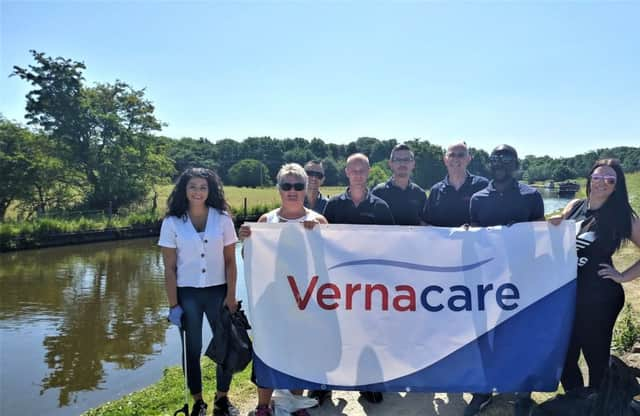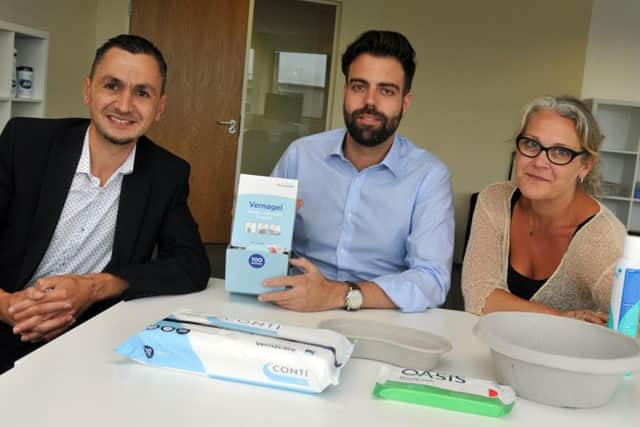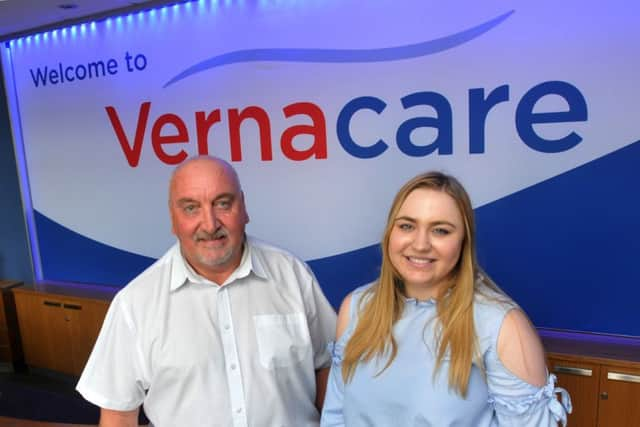Healthcare manufacturer Vernacare in Chorley wages a war against plastics


The Chorley-based firm, which manufactures single-use paper pulp medical containers instead of re-using plastic equivalents, put its environmentally friendly ethos to good practice by taking a day out of the office to go litter picking.
Vernacare heavily supports the ongoing Anti-Plastic Campaigns and were determined to do their part in helping the environment by organising their very own Plastic Patrol along the banks of the canal in Lancashire.


Advertisement
Hide AdAdvertisement
Hide AdEmployees in four teams took part in a relay style race, starting with team one at Adlington Cemetery and team four finishing the patrol in Riley Green.
CEO Matt Miller, took part in team three from Botany Bay to Higher Wheelton picking up plenty of plastic in support of the campaign.
He says: “We are passionate about the fight against plastics which is affecting our planet right now.
“Vernacare aims to conduct one of these events quarterly to truly look after our environment, support the community and show that we really do care in the war against plastics.”


Advertisement
Hide AdAdvertisement
Hide AdThe award winning global supplier of everyday healthcare essentials, which was founded in 1964, has more than 300 employees across two sites in Matrix Park, Chorley, and Bolton. It also has a Canadian office which covers both Canada and the North American markets.
Committed to minimising waste, all of Vernacare’s single-use moulded containers are made from recycled fibre. The system incorporates SmartFlow technology to allow moulded fibre containers to be used once by a patient and then flushed to the drain without adding to landfill.
Not only do the products have environmental benefits, but rates of healthcare acquired infections such as clostridium difficile are reduced, compared with using reusable plastic containers.
Hakeem Adebiyi, sales and marketing director, says: “Vernacare is a key player in the move towards long-term sustainability by introducing our hygienic single-use system to the world: saving the lives of patients and saving the world at the same time.
Advertisement
Hide AdAdvertisement
Hide Ad“We develop and manufacture quality products which are proven to help improve the lives of patients, residents and healthcare professionals by reducing the risk of healthcare-associated infections.
“As pioneers for safe and hygienic care, we continue to innovate and collaborate in the areas of single-use toileting systems, personal hygiene, environmental cleaning, skin integrity and surgical solutions, pushing the standard of care forward, helping people lead longer more dignified lives.
“We are the only company in the world to manufacture and supply a full system solution which encompasses more than 20 different single-use containers such as bedpans, male urinals, detergent proof washbowls as well as the pulp disposal units for patient toileting and personal hygiene needs. For that reason we are the global leader present in more than 50 countries.”
Vernacare’s system is used in 94 per cent of NHS trusts and is installed in some of the largest flagship facilities such as BUPA (Chile), Gustve Roussey (France), Manipal group (India), National University Hospital (Singapore).
Advertisement
Hide AdAdvertisement
Hide AdGarry Partington is the research and development manager, responsible for the design and development of macerator disposal units and pulp single-use urinals, bedpans, bowls and other single-use containers.
He says: “I manage a team of three and we are continuously exploring new product ideas and developing prototypes, which we test at our production site and in hospital settings. It’s great to tap into the expertise of colleagues from engineering and manufacturing to ensure our designs are optimised for manufacture. This makes a big difference to getting products right first time.”